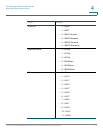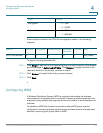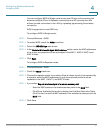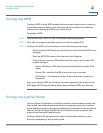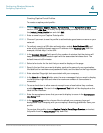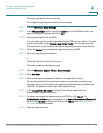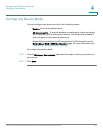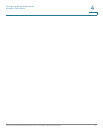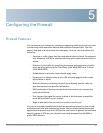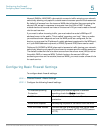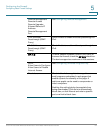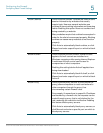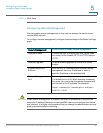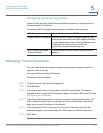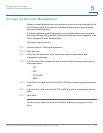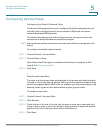
5
Cisco RV130/130W Wireless Multifunction VPN Router Administration Guide 82
Configuring the Firewall
Firewall Features
You can secure your network by creating and applying rules that the device uses
to selectively block and allow inbound and outbound Internet traffic. You then
specify how and to what devices the rules apply. To do so, you must define the
following:
• Services or traffic types that the router should allow or block. For example,
web browsing, VoIP, other standard services and custom services that you
define.
• Direction for the traffic by specifying the source and destination of traffic;
this is done by specifying the From Zone (LAN/WAN/DMZ) and To Zone
(LAN/WAN/DMZ).
• Schedules as to when the router should apply rules.
• Keywords (in a domain name or on a URL of a web page) that the router
should allow or block.
• Rules for allowing or blocking inbound and outbound Internet traffic for
specified services on specified schedules.
• MAC addresses of devices whose inbound access to your network the
router should block.
• Port triggers that signal the router to allow or block access to specified
services as defined by port number.
• Reports and alerts that you want the router to send to you.
You can, for example, establish restricted-access policies based on time-of-day,
web addresses, and web address keywords. You can block Internet access by
applications and services on the LAN, such as chat rooms or games. You can block
specific groups of PCs on your network from being accessed by the WAN or
public DMZ network.



